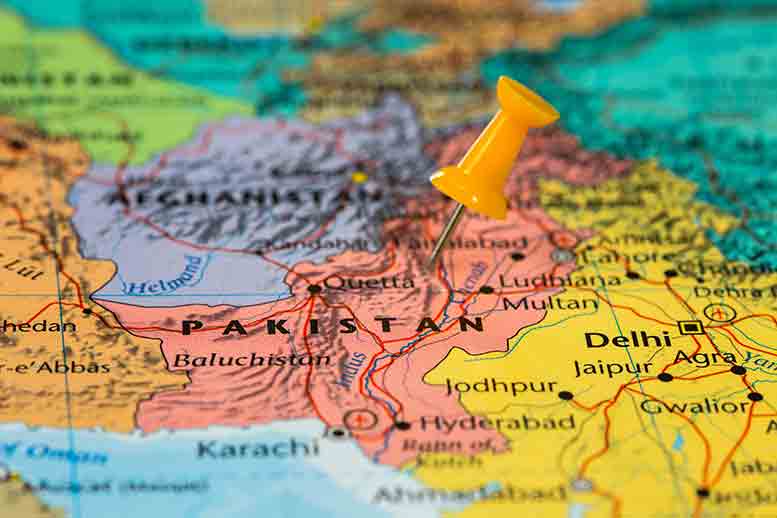The government of Pakistan announced a new law that will finally establish a regulatory body for cannabis after years of discussion and political turmoil that have delayed the industries’ development.
The new law establishes a Cannabis Control and Regulatory Authority (CCRA), and sets out a basic framework for licensing of both hemp and marijuana stakeholders. The CCRA will manage licensing and create rules to control farming, processing, manufacturing and sales of hemp products for medical, industrial and other purposes.
A 0.3% maximum THC level is adopted as the defining line between hemp and marijuana, according to the new law, which will apply to “any derivative of the cannabis plant, whether natural or synthetic, . . . (including) derivatives which are directly or indirectly manufactured from any part of the cannabis plant for use in other industries, such as textile industry, pharmaceutical industry, food industry, construction industry, chemical industry, etc. or any other industry as defined by the Federal Government from time to time.”
Funding for development
The new law also calls for the government to provide financial and non-financial incentives to encourage the development of the market for cannabis products, and establish consumer protection and public safety strategies for such things as packaging, and consumer education and awareness.
Under specific rules, licensees must provide labeling that states the source and level of THC content, intended use, and any other information that may be included in rules yet to be established.
The CCRA is to set safety and performance standards for compliance with good manufacturing and agricultural practices, monitoring of THC content, and safe consumption. The new agency will coordinate enforcement of cannabis regulations with Pakistan’s Anti-Narcotics Force, which is empowered to carry out inspections of cannabis operations.
Recent history
Pakistan approved hemp farming and processing in September 2020 under the government of then Prime Minister Imran Khan, putting direction exclusively under the Ministry of Science & Technology.
When current Prime Minister Shehbaz Sharif succeeded Khan, who was ousted in 2022, the new government also involved the ministries of Narcotics Control, Commerce, National Food Security and Research in cannabis policymaking.
Advocates have suggested that Pakistan’s hemp sector could quickly reach $1 billion, and improve the country’s foreign exchange position. Some stakeholders see hemp as a replacement crop for cotton in Pakistan’s textile industry, while others see opportunities for CBD production and say hemp fiber residue can be turned into bio-energy outputs.

